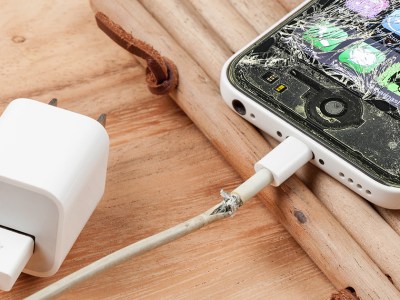Founded in Limerick, Ireland in 1989 and originally named “The Cranberry Saw Us” (get it, like Cranberry Sauce. Do you get it? But do you get it? It’s funny. Do you… DO YOU GET IT, THOUGH?) the Cranberries were formed by Niall Quinn, Mike and Noel Hogan and the wonderfully named Fergal Lawler.
After Quinn’s departure and replacement by our favorite “angry Irish woman,” the late, great Dolores O’Riordan, the band took up a new nom de geurre, “The Cranberries.” In their new four-piece outfit, the band quickly became one of Ireland’s most famous contributions to the world of music, with influences taken from classic rock, punk music, jangle pop, traditional Celtic music and even Gregorian chants, which were big in the ‘90s.
With lyrics ranging from the personal (love, loss, sexuality, and family) to the political (war, genocide, and the ever-troublesome Troubles), it’s not hard to see why the Cranberries have stood the test of time as one of the most endearing alt-rock bands. But how do their albums stack up with each other? Well, read on and see for yourself.
8. Roses (2012)
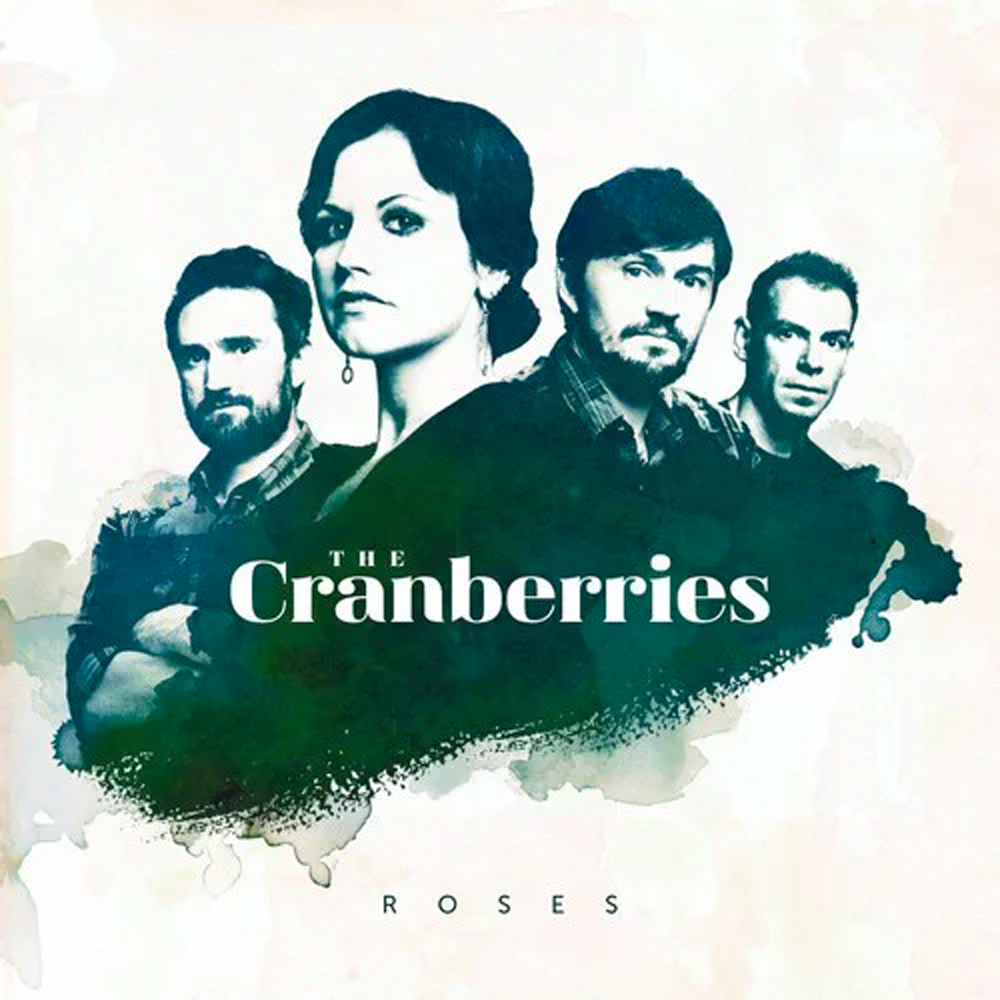 A comeback album of sorts, “Roses” marked the band’s first studio album after an eleven-year hiatus. There’s nothing wrong with “Roses” of course. By and large, every Cranberries album is very enjoyable, and songs like “Tomorrow” and “Schizophrenic Playboy” are easy contenders for top-tier songs by the band. But still, there’s nothing really super groundbreaking here. But still, it’s important to remember this one came out in 2012 when the world had just crawled through the hazy fever dream of “party rocking” and badly needed an aspirin and an Egg McMuffin. The kind only the lilting sounds of the Cranberries could provide.
A comeback album of sorts, “Roses” marked the band’s first studio album after an eleven-year hiatus. There’s nothing wrong with “Roses” of course. By and large, every Cranberries album is very enjoyable, and songs like “Tomorrow” and “Schizophrenic Playboy” are easy contenders for top-tier songs by the band. But still, there’s nothing really super groundbreaking here. But still, it’s important to remember this one came out in 2012 when the world had just crawled through the hazy fever dream of “party rocking” and badly needed an aspirin and an Egg McMuffin. The kind only the lilting sounds of the Cranberries could provide.
Play it again: “Schizophrenic Playboy”
Skip it: “Waiting in Wathamstow”
7. To the Faithful Departed (1996)
 If there’s one thing you can say for “To the Faithful Departed,” it is probably the darkest-sounding Cranberries album. But still, that doesn’t stop it from sounding like a step down from the risk-taking perfection of “Everybody Else Is Doing It, So Why Can’t We?” or the lyricism of “No Need to Argue.” There are some wonderful songs, to be sure. “Hollywood,” is a dark and rocking, banshee shriek of an opener, while “When You’re Gone” and “Free to Decide” are back-to-back slices of perfection and “Electric Blue” combines experimental rock with Celtic music and old-school Gregorian chanting. Like a mass held by the Priest from “Fleabag.” Still, other songs feel like steps away from the band’s best output. “Salvation,” for instance, feels a bit like a DARE lecture with punk music accompanying it. And other sections of the album just seem to drag, like a migraine you can’t quite shake, even by mid-day. The kind where you think it’s gone for twenty minutes or so at a time, but then it comes back and you think to yourself: “Should I take another Tylenol? I’ve had three already today and I don’t wanna push it, but it’s one of those ones that’s right behind my eyes.” It’s sinus. Don’t bother. Blow your nose. Drink some water. You’ll be okay by tonight. Anyway… it’s a fine album. We just wish it were… finer.
If there’s one thing you can say for “To the Faithful Departed,” it is probably the darkest-sounding Cranberries album. But still, that doesn’t stop it from sounding like a step down from the risk-taking perfection of “Everybody Else Is Doing It, So Why Can’t We?” or the lyricism of “No Need to Argue.” There are some wonderful songs, to be sure. “Hollywood,” is a dark and rocking, banshee shriek of an opener, while “When You’re Gone” and “Free to Decide” are back-to-back slices of perfection and “Electric Blue” combines experimental rock with Celtic music and old-school Gregorian chanting. Like a mass held by the Priest from “Fleabag.” Still, other songs feel like steps away from the band’s best output. “Salvation,” for instance, feels a bit like a DARE lecture with punk music accompanying it. And other sections of the album just seem to drag, like a migraine you can’t quite shake, even by mid-day. The kind where you think it’s gone for twenty minutes or so at a time, but then it comes back and you think to yourself: “Should I take another Tylenol? I’ve had three already today and I don’t wanna push it, but it’s one of those ones that’s right behind my eyes.” It’s sinus. Don’t bother. Blow your nose. Drink some water. You’ll be okay by tonight. Anyway… it’s a fine album. We just wish it were… finer.
Play it again: “Free to Decide” and “When You’re Gone”
Skip it: “Salvation”
6. Something Else (2017)
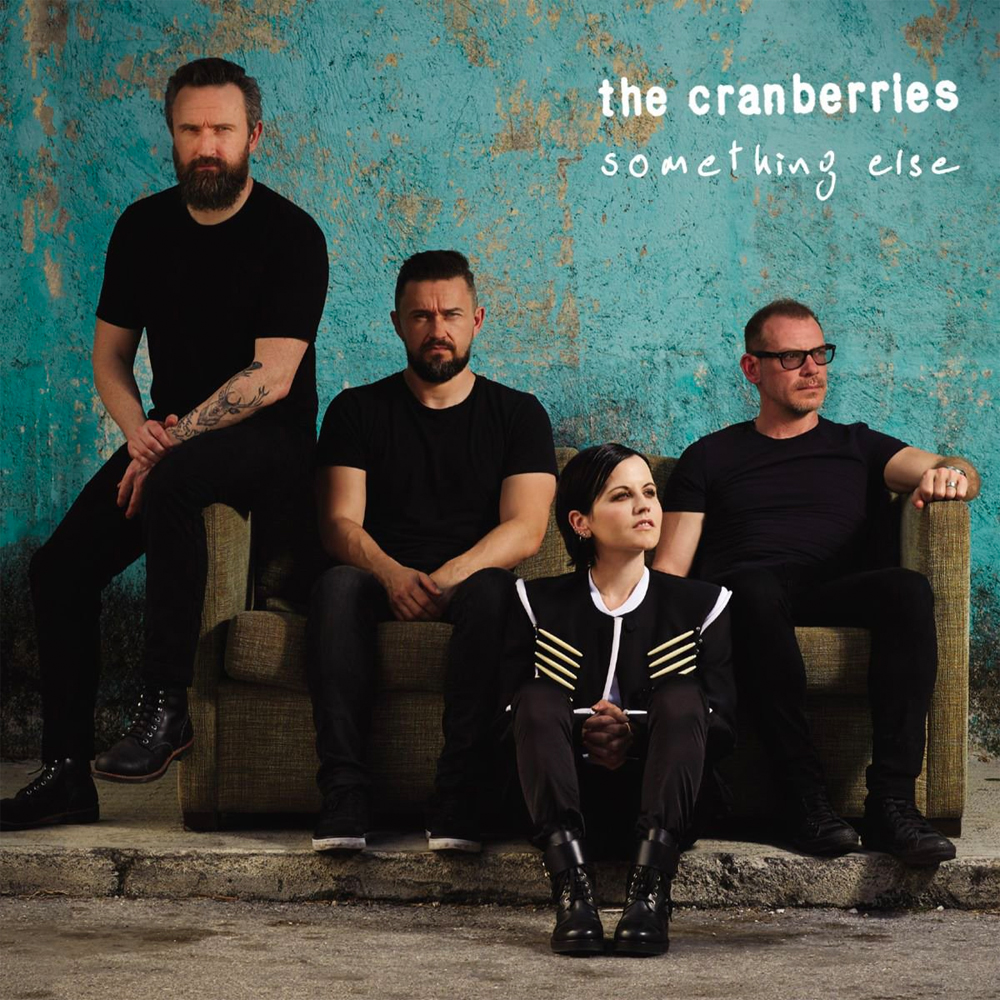 We have a soft spot for acoustic covers of classic songs. And “Something Else” does a great job at just that. Really, the seventh studio album by the group is a greatest hits piece, but more than drunken regurgitation, this album is sort of a Frankenstein-ish re-working (and sometimes improvement upon) the band’s first four LPs (as well as a few new ones). “Linger” and “Just My Imagination” sound incredible when scored with violins and acoustic guitars, and “Dreams” and “When You’re Gone” take on entirely new vibrance in their re-workings. Meanwhile, the album’s high point is a brand new song called “The Glory,” a beautiful, autumnal piece we could listen to again and again. (Note, to all writers, it’s a fantastic piece of writing music.) Still, not every song fares quite as well from the all-acoustic treatment. Some songs by the band are so punk that the acoustic treatment strips them a little. “Zombie,” for instance, while not at all bad as a folk song, definitely misses something in not having its hard abrasiveness.
We have a soft spot for acoustic covers of classic songs. And “Something Else” does a great job at just that. Really, the seventh studio album by the group is a greatest hits piece, but more than drunken regurgitation, this album is sort of a Frankenstein-ish re-working (and sometimes improvement upon) the band’s first four LPs (as well as a few new ones). “Linger” and “Just My Imagination” sound incredible when scored with violins and acoustic guitars, and “Dreams” and “When You’re Gone” take on entirely new vibrance in their re-workings. Meanwhile, the album’s high point is a brand new song called “The Glory,” a beautiful, autumnal piece we could listen to again and again. (Note, to all writers, it’s a fantastic piece of writing music.) Still, not every song fares quite as well from the all-acoustic treatment. Some songs by the band are so punk that the acoustic treatment strips them a little. “Zombie,” for instance, while not at all bad as a folk song, definitely misses something in not having its hard abrasiveness.
Play it again: “The Glory”
Skip it: “Rupture”
5. Wake Up And Smell the Coffee (2001)
 The Cranberries have always been gifted at conjuring up familiar pain. This album does it as well as any, even in its opener, “Never Grow Old.” Melancholy piano music plays as O’Riordan sings: “I had a dream, strange it may seem, it was my perfect day. Open my eyes, I realize, it was my perfect day.” There’s something ghostly, otherworldly about that sentiment that pervades through “Wake Up and Smell the Coffee,” even in the most punkish songs like “Analyze” and the titular track. Ultimately, the whole thing plays out like one raucous day, and a beautiful, raucous send-off before the band’s eleven-year hiatus. Sure, it’s not always the most original sound. “Analyze” sounds a bit like if Blondie all went to Catholic school, with only the most ruler-happy of nuns before revolting and “Time is Ticking Out” echoes the concerns of “Zombie” and “Free to Decide” in ways that don’t quite live up to either. But still, it’s the band’s most profoundly underrated album and one that’s always worth a listen. We should all wake up and smell the coffee. But make ours with oat milk, please. Because even though we’re punk here at The Hard Times, the dairy makes us feel crumb-crumb in our tum-tum.
The Cranberries have always been gifted at conjuring up familiar pain. This album does it as well as any, even in its opener, “Never Grow Old.” Melancholy piano music plays as O’Riordan sings: “I had a dream, strange it may seem, it was my perfect day. Open my eyes, I realize, it was my perfect day.” There’s something ghostly, otherworldly about that sentiment that pervades through “Wake Up and Smell the Coffee,” even in the most punkish songs like “Analyze” and the titular track. Ultimately, the whole thing plays out like one raucous day, and a beautiful, raucous send-off before the band’s eleven-year hiatus. Sure, it’s not always the most original sound. “Analyze” sounds a bit like if Blondie all went to Catholic school, with only the most ruler-happy of nuns before revolting and “Time is Ticking Out” echoes the concerns of “Zombie” and “Free to Decide” in ways that don’t quite live up to either. But still, it’s the band’s most profoundly underrated album and one that’s always worth a listen. We should all wake up and smell the coffee. But make ours with oat milk, please. Because even though we’re punk here at The Hard Times, the dairy makes us feel crumb-crumb in our tum-tum.
Play it again: “Never Grow Old”
Skip it: “Chocolate Brown”
4. In the End (2019)
 2019 is a ghost of a year now. Four years ago (at the time of writing this) feels both like yesterday and an endless ocean away. It was a year of ghosts in music too. Like Leonard Cohen’s hauntingly beautiful and spare “Thanks For the Dance,” “In the End” was released after the death of its central creative force, in this case, over a year after the death of Dolores O’Riordan. O’Riordan had completed most of the vocals prior to her death and after a brief period of mourning, the band took to the studio to finish the musical accompaniments. It worked. Beautifully. This album feels like a warm hug, a visit from a friend you thought you’d never see again. The lyrics are appropriately dark, as if O’Riordan knew that she wouldn’t live to see the record’s release. Songs like “Lost,” “A Place I Know” and “All Over Now” are almost haunting. Sonically, it feels like a throwback to the very beginning, longing, pain and politics all blend together for a gorgeous listening experience. One that proves that even in death, O’Riordan would always do things on her own terms.
2019 is a ghost of a year now. Four years ago (at the time of writing this) feels both like yesterday and an endless ocean away. It was a year of ghosts in music too. Like Leonard Cohen’s hauntingly beautiful and spare “Thanks For the Dance,” “In the End” was released after the death of its central creative force, in this case, over a year after the death of Dolores O’Riordan. O’Riordan had completed most of the vocals prior to her death and after a brief period of mourning, the band took to the studio to finish the musical accompaniments. It worked. Beautifully. This album feels like a warm hug, a visit from a friend you thought you’d never see again. The lyrics are appropriately dark, as if O’Riordan knew that she wouldn’t live to see the record’s release. Songs like “Lost,” “A Place I Know” and “All Over Now” are almost haunting. Sonically, it feels like a throwback to the very beginning, longing, pain and politics all blend together for a gorgeous listening experience. One that proves that even in death, O’Riordan would always do things on her own terms.
Play it again: “All Over Now”
Skip it: No skip album.
3. No Need to Argue (1994)
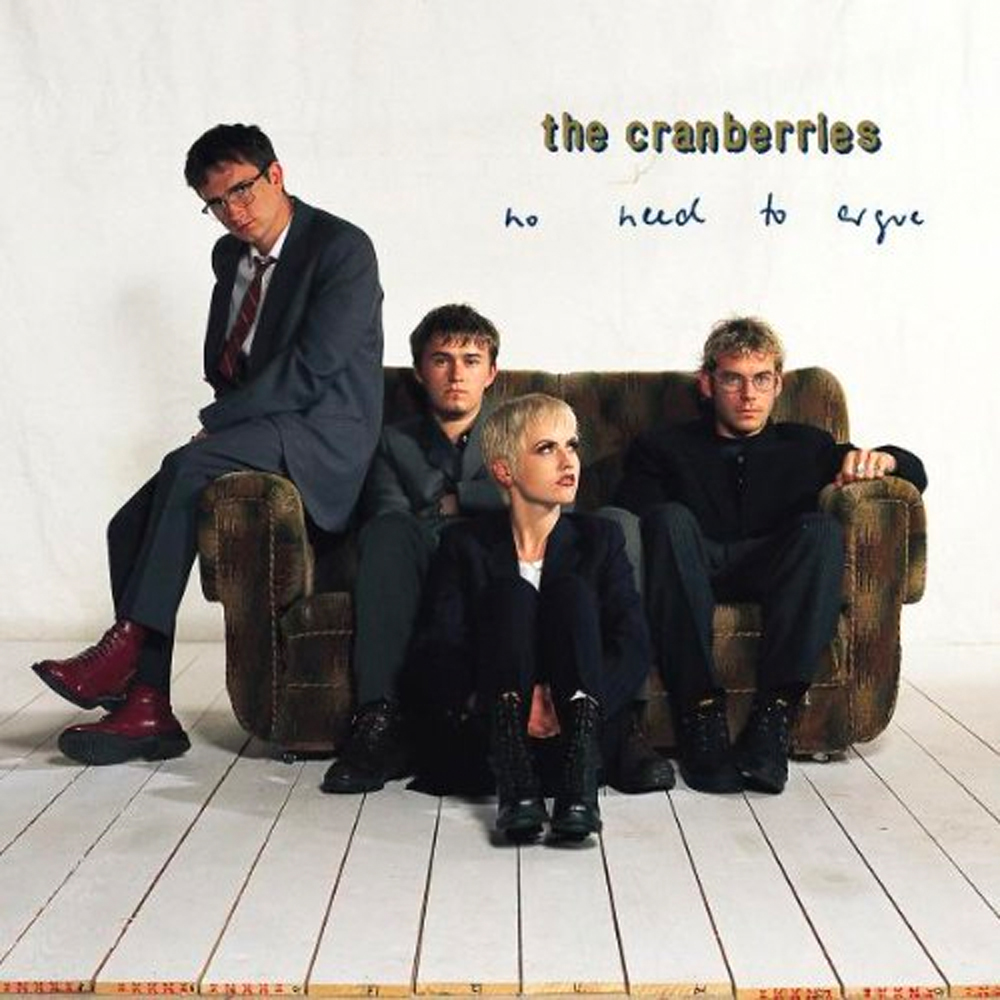 Being a Cranberries fan means going through phases: Phase One is discovering the band through “Zombie.” Phase two is listening to other big singles, your “Lingers,” your “Dreamses” your “Odes to my Family.” Phase three is realizing that “Zombie” is just scratching the surface of how good The Cranberries can actually be. Just think about that, if any other band wrote “Zombie” it would be there best song by a country mile, but with the Berries, it’s just firmly in the top ten. Still, “No Need to Argue” is a stone-cold classic. Songs like “Twenty-One” or “I Can’t Be With You,” are undeniably great. But it does fall short of our number one slot.
Being a Cranberries fan means going through phases: Phase One is discovering the band through “Zombie.” Phase two is listening to other big singles, your “Lingers,” your “Dreamses” your “Odes to my Family.” Phase three is realizing that “Zombie” is just scratching the surface of how good The Cranberries can actually be. Just think about that, if any other band wrote “Zombie” it would be there best song by a country mile, but with the Berries, it’s just firmly in the top ten. Still, “No Need to Argue” is a stone-cold classic. Songs like “Twenty-One” or “I Can’t Be With You,” are undeniably great. But it does fall short of our number one slot.
Play it again: “Ode to My Family”
Skip it: “Dreaming My Dreams” unless you are trying to take a nap.
2. Everybody Else Is Doing It, So Why Can’t We? (1993)
 Yes, and now on to number one, it’s… (record scratch) Wait, what? WHAT? “Everybody Else Is Doing It, So Why Can’t We?” isn’t the BEST album by the Cranberries? I suggest we boycott The Hard Times without delay, publish the addresses of the writers and editors, have them tarred, feathered, and run out of town. We all know you’re about to start piss-babying in the comments like we know y’all like to do. To that, we say: Search your feeling. You know it to be true. For one thing, don’t you think it would be boring if a band as legendary as this really made their first record their best? You don’t. Oh, well fuck us then. Listen, this is a brilliant record. It’s infallible. It’s one of the most perfect debut LPs imaginable. From the very first song, the witchy “I Still Do,” an ominous portent of O’Riordan’s own untimely death, the band’s sound was sophisticated and established. This album contains “Linger” and “Dreams,” two of the most famous songs of all time, and the unappreciated but incredible “Sunday,” which we here at The H.T. like to brag that “we liked before TikTok did.” We would never offer a slight against this album except to say that portions of it (even phenomenal songs like “Waltzing Back” and “Wanted”) feel slllllliiiiiiightly undercooked. But that’s forgivable, of course. So why is it only at number two? Well, that’s because of…
Yes, and now on to number one, it’s… (record scratch) Wait, what? WHAT? “Everybody Else Is Doing It, So Why Can’t We?” isn’t the BEST album by the Cranberries? I suggest we boycott The Hard Times without delay, publish the addresses of the writers and editors, have them tarred, feathered, and run out of town. We all know you’re about to start piss-babying in the comments like we know y’all like to do. To that, we say: Search your feeling. You know it to be true. For one thing, don’t you think it would be boring if a band as legendary as this really made their first record their best? You don’t. Oh, well fuck us then. Listen, this is a brilliant record. It’s infallible. It’s one of the most perfect debut LPs imaginable. From the very first song, the witchy “I Still Do,” an ominous portent of O’Riordan’s own untimely death, the band’s sound was sophisticated and established. This album contains “Linger” and “Dreams,” two of the most famous songs of all time, and the unappreciated but incredible “Sunday,” which we here at The H.T. like to brag that “we liked before TikTok did.” We would never offer a slight against this album except to say that portions of it (even phenomenal songs like “Waltzing Back” and “Wanted”) feel slllllliiiiiiightly undercooked. But that’s forgivable, of course. So why is it only at number two? Well, that’s because of…
Play it again: “Sunday”
Skip it: No Skip Album
1. Bury the Hatchet (1999)
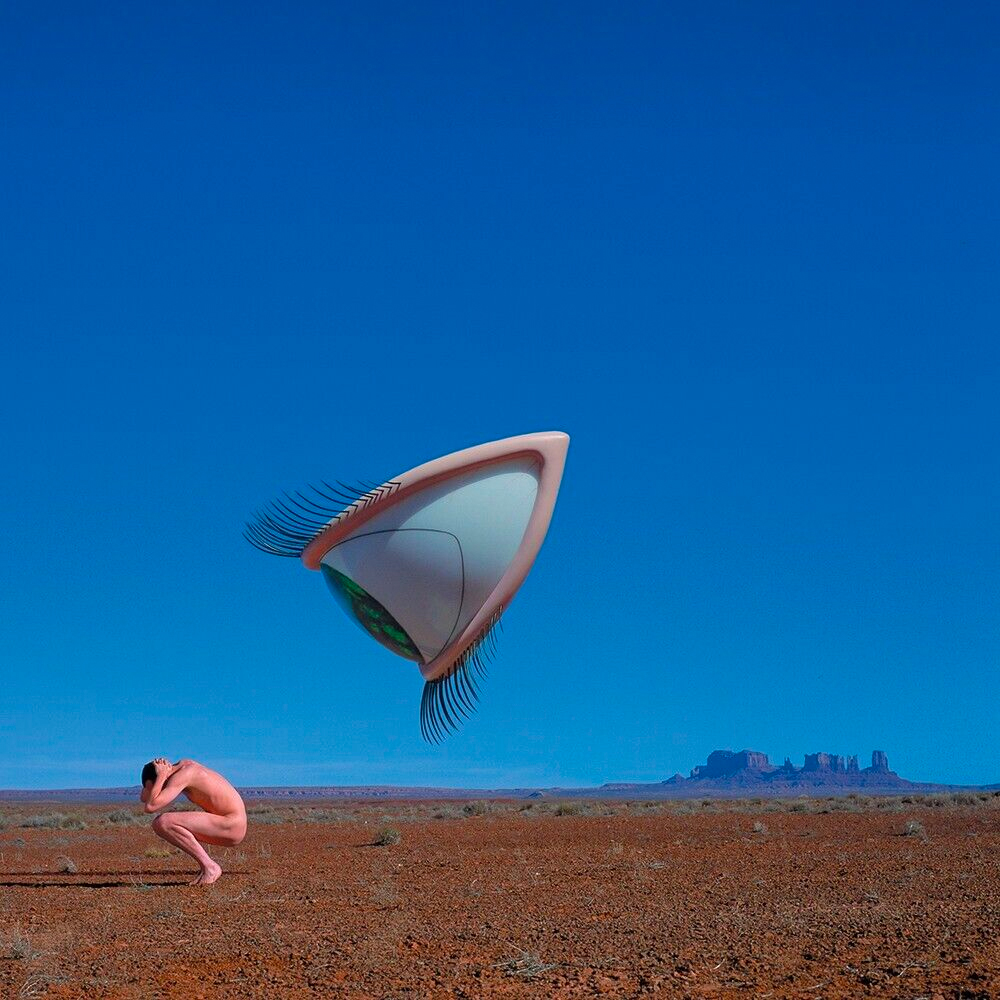 Yes. That’s right. Dark horse over here. “Bury the Hatchet” has come in at number one of the list. But before you have us all pressed to death as witches and heretics, let us defend our choice. “Bury the Hatchet” represents, to us at least, the peak of what the Cranberries were doing in the ‘90s. This album perfectly combines the subtle, yearning of O’Riordan’s lyrics, the haunting quality of her voice, the gorgeous instrumentation, and the driving, punkish intent. Songs like “Animal Instinct” and “Just My Imagination” are endlessly enjoyable throwbacks to the band’s influences, groups like Fleetwood Mac. Meanwhile “Loud and Clear” and “Desperate Andy” showcase punk playfulness and “Saving Grace” and “You and Me” feature a kind of beauty beyond beauty. It’s a subtle, beautiful, enjoyable, and mature album. One that shows the band was capable of growth and depth. That’s why we have it at number one.
Yes. That’s right. Dark horse over here. “Bury the Hatchet” has come in at number one of the list. But before you have us all pressed to death as witches and heretics, let us defend our choice. “Bury the Hatchet” represents, to us at least, the peak of what the Cranberries were doing in the ‘90s. This album perfectly combines the subtle, yearning of O’Riordan’s lyrics, the haunting quality of her voice, the gorgeous instrumentation, and the driving, punkish intent. Songs like “Animal Instinct” and “Just My Imagination” are endlessly enjoyable throwbacks to the band’s influences, groups like Fleetwood Mac. Meanwhile “Loud and Clear” and “Desperate Andy” showcase punk playfulness and “Saving Grace” and “You and Me” feature a kind of beauty beyond beauty. It’s a subtle, beautiful, enjoyable, and mature album. One that shows the band was capable of growth and depth. That’s why we have it at number one.
Play it again: “Just My Imagination” and “Animal Instinct”
Skip It: No Skip Album


